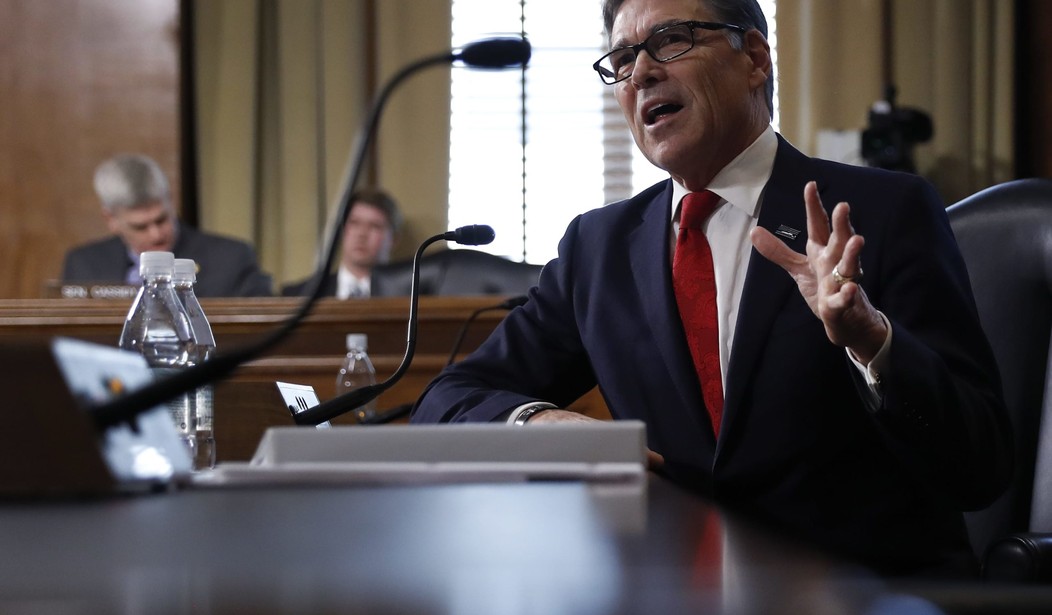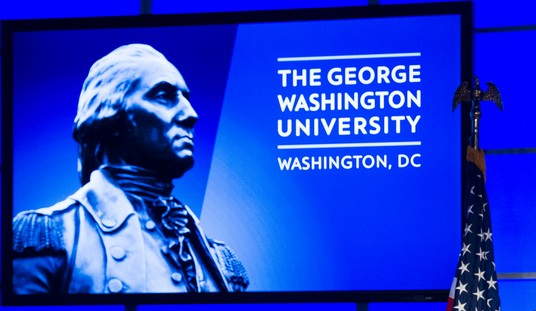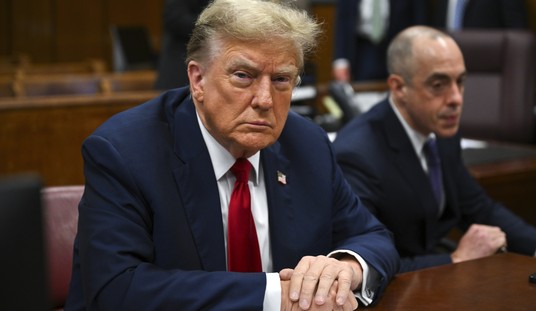Energy Secretary nominee Rick Perry promised the Senate Committee on Energy and Natural Resources today that he would push back against reported Trump transition team plans for a massive reduction in the Department of Energy’s budget.
The Hill reported today the Trump administration was planning significant cuts to the DOE budget as part of a plan to trim $10.5 trillion in federal spending over 10 years.
The Trump team is reportedly using a Heritage Foundation blueprint for the budget reductions. The plan includes rolling back the calendar on DOE’s funding for nuclear physics and putting scientific computing funding levels back to what was spent in 2008.
The DOE Office of Electricity as well as the Office of Energy Efficiency and Renewable Energy would be eliminated, an unnamed source told the paper, as would the Office of Fossil Energy, which works on ways to use technology to cut carbon dioxide emissions.
Sen. Angus King (I-Maine) called those cuts “absolutely nuts” in terms of what they would do to the nation’s energy future. He asked for a pledge from Perry to be “lion-hearted” in defense of the DOE.
Perry promised King he would defend the DOE and told Sen. Maria Cantwell (D-Wash.) he was not a part of the Trump group that came up with that plan and didn’t support it.
“I will work to support all the science at DOE,” Perry said, “and protect the men and women in our scientific community from anyone who might attack them.”
When Sen. Mazie Hirono (D-Hawaii) asked what he thought of the budget-cutting plan, Perry drew scattered laughs and applause from the audience by telling her, “Maybe they will have the same experience I had and forget that they said that.”
It was the Energy Department that Perry forgot during his famous “oops” moment during a November 2011 presidential primary debate. Perry fumbled that night while trying to name the three departments he would eliminate as president, which were Commerce, Education and Energy.
A few days later during a speech in Iowa, Perry doubled down on his call for an end to those departments. He described them as “wasteful, redundant federal agencies” that were “monuments of bureaucratic failure.”
But Perry told the Senate committee today that since he’s learned what the DOE actually does, his opinion had changed.
“In fact, after being briefed on so many of the vital functions of the Department of Energy, I regret recommending its elimination,” Perry said at the beginning of the hearing.
Perry has also changed his mind on climate change.
Perry once said that he suspected climate scientists were changing data for financial gain. But today, Perry said he now believes the climate is changing and some of that change is being caused by man-made activity.
“The question is how do we address it in a way that doesn’t compromise economic growth, the affordability of energy or American jobs,” Perry said.
Perry agreed later in the morning with Sen. Al Franken (D-Minn.), who said that economic growth and climate science don’t have to be at odds with each other.
But Perry refused to bend to Sen. Bernie Sanders’ (I-VT) demand to agree that climate change was a “global crisis” and a radical transformation of the world’s energy system was needed to combat it.
In response to Sanders’ allegation that he was a fossil-fuel supporter who had ignored clean energy, Perry said power plants in Texas had reduced carbon output by 17 percent, sulfur dioxide by 56 percent and nitrous oxide by 66 percent.
“Senator (Sanders) I believe the planet is changing,” Perry said in a testy exchange. “And I would like to get past the rhetoric.”
If Perry wins confirmation by the Senate, he will replace a nuclear physicist, Ernest Moniz, the former chairman of the Massachusetts Institute of Technology physics department. Before Moniz, Stephen Chu, a Nobel-prize winning physicist, ran the DOE.
Perry’s supporters on the Senate committee readily admitted Perry was not in Moniz’s and Chu’s league when it came to a scientific background.
But they contended that after serving for 14 years as the governor of Texas — with the nation’s second-largest state economy, and one of the largest energy economies in the world — very few could stand in Perry’s league when it came to management.
“What we need is a good manager,” Sen. Lisa Murkowski (R-Alaska) said. “We don’t need a scientist to manage scientists.”
Perry didn’t blink during a question-and-answer exchange with Franken when the Minnesota Democrat agreed that Perry was not a climate scientist.
“I am never going to be a climate scientist,” Perry said. “But I know how to hire really good scientists.”








Join the conversation as a VIP Member